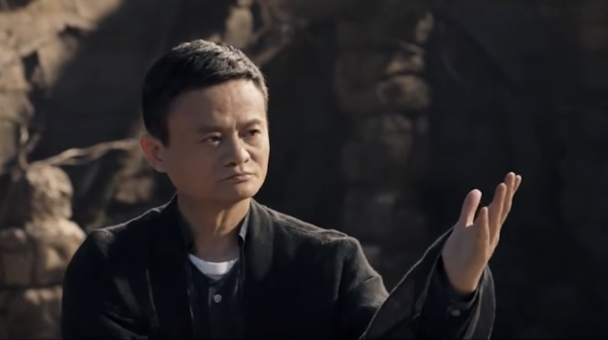Alibaba after Jack Ma: how will his departure impact the brand?
Jack Ma is not one to shy away from the spotlight, so last week’s media storm surrounding his chairmanship retirement announcement was characteristic of the high-profile way the Alibaba founder operates.

Alibaba's high profile founder Jack Ma plans to step away from the company to pursue education-related philanthropy
The announcement, dropped by Ma during a New York Times interview, was quickly picked up and run by news outlets around the world. It seemed to surprise Alibaba though with the e-commerce giant’s press department initially denying the news when approached by local media outlets.
When the official announcement did come, accompanied by a succession plan, it was stressed by all involved that the plan has been a long time in the making. Meanwhile, Ma back-peddled to confirm he would be staying on with the role until 2020 and will retain a role still within the company after that.
As the public face of China’s biggest e-commerce company, Ma has become synonymous with the company he founded in 1999 – to many people he is Alibaba.
This intertwining of man and brand has been reflected in the global awareness of the two, as Alibaba’s star rose globally, so too did Ma’s. Together they became the symbols of the new innovative China.
However, in a bid to distance himself from this comparison, and minimise the impact of his departure, Ma wrote in a letter, “Alibaba was never about Jack Ma, but Jack Ma will forever belong to Alibaba.”
The news was immediately reflected in the stock market, albeit briefly. The announcement of Alibaba chief executive officer Daniel Zhang as Ma’s successor, with Zhang to add the chairman title to his current role, was enough to quell the markets.
Zhang has been with the e-commerce giant since 2007 and is credited as the man behind a number of the company’s major successes. Most significantly he is credited with establishing the e-commerce giant's Singles' Day event, the online shopping extravaganza which last year raked in more than $25bn. He is also one of the architect’s behind Alibaba's new retail strategy which seeks to merge online and offline shopping to create a seamless customer experience.
Zhang stepped into the chief executive role in 2015 and has overseen 13 consecutive quarters of growth and he is viewed as an extremely safe and competent pair of hands for the business. While he was recently crowned the countries number one CEO by Chinese media, outside of China he is relatively unknown.
“Jack Ma’s (decision to) leave is not a sudden accident for the boards of Alibaba, and like he said, he has prepared for this since long time ago,” says Jason Lee, analyst at CMR.
“Ma’s leaving is mostly due to his personal dedication to the education sector, while the next chairman Daniel Zhang has proved himself as a good CEO since 2015 and his contribution in pushing Taobao’s business on the mobile side. Though he used to keep a low profile, I think he will go to the front stage more in the future internationally.”
“Probably, Daniel Zhang’s challenge will be letting the market recognise him as the new helmsman, just like Tim Cook did when Steve Jobs left Apple. And most importantly, to give the market a good earning result next quarter,” says Lee.
While Ma is seen as the flamboyant, media-ready superhero, Zhang is viewed as the serious, hard-working finance guy. Together the duo has provided a strong one-two combination ensuring the spotlight remains on the company as it rolls out its global expansion plans.
As Kevin Carter, founder of the Emerging Markets Internet & Ecommerce fund said, “Jack Ma is Superman, Daniel is Clark Kent.”
But, with Ma stepping away from the Alibaba show the question remains, how will his departure impact the Alibaba brand?
Doug Pearce, the non-executive chairman of Omnicom Media Group, Greater China, says, “He’s like the Richard Branson, Steve Jobs and Elon Musk of their respective companies who are brands in their own right.”
“Jack Ma is a very high-profile leader of a business and it’s very hard for anyone to step into his shoes and do all that he did with the same charisma and profile, given that he built the business himself. The Jack Ma brand means a lot to employees; he’s very well liked and has a big annual show, playing a big role in it too. There was even a movie made about him last year. There is always that question of change after any big single entrepreneur who builds their own company steps down."
However, Pearce is confident Zhang will rise to the occasion, "We won’t have the founder at the helm anymore, but we’ll have a new CEO and that always brings in new things to the table as well."
Likewise, Stephen Chu, the chief digital officer of BBDO Greater China, believes the brand will continue to evolve under the new leadership.
“Brand is the extension of a company and company is the extension of the helm. I am sure the brand spirit will be a bit different after changing leadership. But don’t forget, Alibaba’s strength is acting quickly and knowing how to survey in a fast-moving market.”
Chu also points to the wealth of experience in leadership across the business and its many divisions and he, like many others, believes Zhang’s presence will continue to grow globally now that Ma is stepping away.
While Zhang’s reputation may be largely unknown in western markets, across Asia it is a different story.
“If you only count western country, the answer is yes. But if you see South East Asia and India, you may have different perspectives. Alibaba has done quite well over South East Asia,” says Chu.
While the market has been quick to point out that Ma’s shareholding means he will continue to have significant power within the company, and Zhang’s steady hands will continue to guide the company towards success, there’s no denying the timing is intriguing.
Ma’s departure will coincide with Alibaba’s 20th anniversary, a move he has said heralds “the beginning of a new era”. However, the announcement comes as Alibaba shares continue to see declines. The company faces increasing competition particularly from the powerhouse partnership of e-commerce rival JD.com and internet giant rival Tencent. Not to mention the emerging start-ups such as Pinduoduo, which has seemingly ruffled Alibaba’s market dominance with its meteoric rise.
It also comes as the Chinese government continues to increase regulation over internet companies and as China’s trade war with the US deepens, just this week the Trump administration announced it would expand tariffs to a further $200bn worth of goods.
The pressure will be on Alibaba to produce another record-breaking performance with this year’s Singles Day event, as well as showcase a host of shiny new retail products in November to assure the market the innovative e-commerce giant is still on track.
“The industry is moving very fast,” says Chu. “Where is the next innovation for the retail industry and how (Alibaba) extend and broaden the current eco-system is crucial.”
Content created with:

Alibaba
Alibaba Group Holding Limited is a Chinese multinational e-commerce, retail, Internet, AI and technology conglomerate founded in 1999.
Find out more
